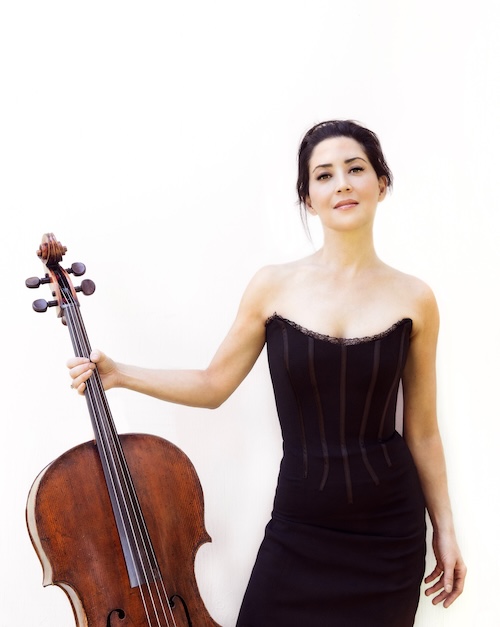NYCO Orchestra seems between two worlds in uneven Carnegie outing

New York City Opera has been hovering like a wraith at the edge of the New York classical music scene for the past few years. The company returned from bankruptcy in 2016 and mounted several productions, but nothing since the world premiere of Ricky Ian Gordon’s The Garden of the Finzi-Continis in January, 2022. There have been a few opera and Broadway music concert performances in the summers since, but it appears to be little more than a brand, much less a functioning opera company.
New York could sure use a healthy NYCO—with On Site Opera recently announcing it has closed down, this city has only one working repertoire company.
The tantalizing nature of what was and could be appeared on stage in Carnegie Hall Monday night with a concert performance from the New York City Opera Orchestra—concert music, no opera—in an odd evening that combined professionalism with some amateurish judgement.
The concert had a stated theme, “A celebration of survival and perseverance through the universal language of music,” which never really appeared in the music, except perhaps through biographical context. With Constantine Orbelian conducting, the orchestra played the Suite from The Last Inch and Fantasy for Cello and Orchestra, both from Mieczyslaw Weinberg, and Erich Wolfgang Korngold’s Cello Concerto in C. Cellist Kristina Reiko Cooper was featured in the latter two works, and all this before intermission. The concert concluded with the orchestral piece Metamorphosis by Gennady Rovner.
Weinberg and Korngold certainly survived some of the major upheavals of the 20th century, the former fleeing his native Poland after the Nazi invasion in 1939 and living out his life in the Soviet Union (he died in 1996 at the age of 76). There, he was politically harassed and imprisoned for several months. Korngold was born in Austria, left Europe in the 1930s to escape Nazism, and became both an American citizen and an important film composer. Each was a fine and still under-appreciated musician, and their work is some testimony to endurance, even if the music heard didn’t express much of this.
While Korngold is known for his scores to The Adventures of Robin Hood and The Sea Hawk, Weinberg also wrote a substantial amount of film music, including the action thriller The Last Inch. Arranged by Sergey Kornienko, this was a compact and vibrant experience in both Weinberg’s populist side and also his sheer craft, the ability to write a concise, interesting tune and use color, harmonies and rhythms to shape mood. This was a strong, sharp performance from the orchestra that promised a lot for the evening.
The remainder of the first half didn’t quite earn that. Weinberg’s Fantasy—really a cello concerto in three connected movements—and Korngold’s Cello Concerto are better pieces than one heard Monday. The Fantasy has a deceptively placid beginning, the sound of dark and deep water that is moving. Orbelian seemed to weigh this down with lowered internal energy, rather than a rich sound, and that lethargy seemed to spread through the orchestra.
Cooper’s cello sang through with a classic, sinewy sound, and she seemed to be fighting her way through the desultory accompaniment. This led to some hectic moments for her and the orchestra in the middle “Allegro con fuoco” section. She frequently pressed at the edges of her intonation while the orchestra chopped through the music behind her.
She wrapped this up energetically, and had a good driving touch in Korngold’s Concerto, but again the orchestra was too heavy and dense behind her. If the heat was too low in the previous piece, here the sound was too clotted. Like his brilliant Violin Concerto, the cello piece is light footed, always looking to soar through the composer’s expressive lyricism. Even if Cooper couldn’t drag the orchestra with her, her own playing was undaunted.
The orchestra sounded much more assured and polished in the second half. Concertmaster Laura Frautschi was superb, with a big, rich sound and excellent intonation in all her solo playing. Horns had a good blend and woodwinds were colorful, one had the sense that this could be a consistently capable ensemble.
One was impressed with their professionalism playing Rovner’s Metamorphosis, because the music was so amateurish. If film music was the context for the first half, so it was on the second but as a contrast between the composers who created film music language and the following generations who, in this case, imitated that in the most simplistic way because apparently they don’t have the skill to write anything complex, or even interesting.
In nine short homophonic instrumental songs augmented with wordless vocals from soprano Elizaveta Ulakhovich in the fifth and last, the piece was a dreary experience in trite, maudlin obviousness. The prevailing source seemed to be Ennio Morricone but without the master’s melodic craft, imagination, or even taste. The music had no personality, no profile, unless the dullest harmonies and rhythms and the squarest melodies represented a personality. There was some interest in the septuple meter of the final section, and a bit of life at the very end, but this was an embarrassment to hear from an ensemble that has higher aspirations.